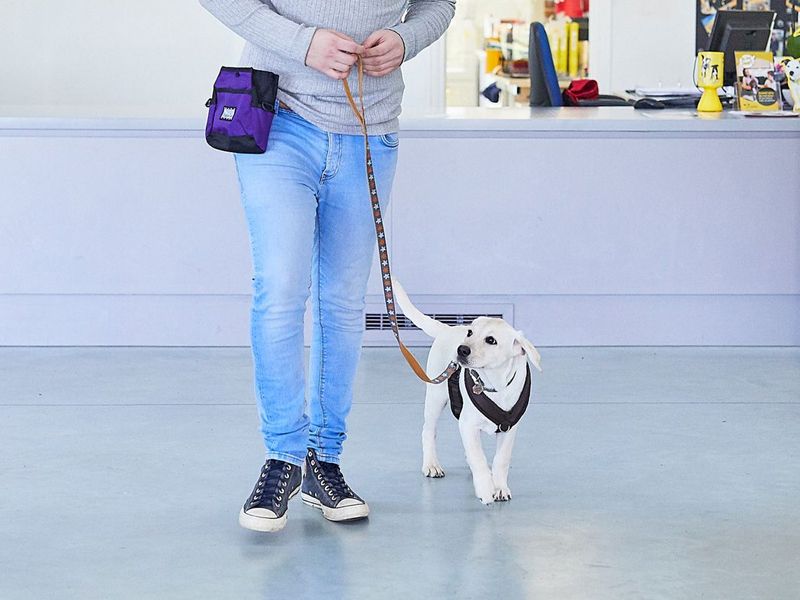How to teach your puppy to be comfortable at the vet
The vet can be a positive place for your dog if you introduce it to them in the right way.

As they grow up, puppies need to mix and socialise with a range of people and animals and experience different sights, sounds and smells. This will prepare them for things that they might encounter throughout their lives and help prevent behavioural problems in the future.
Puppies who have positive, enjoyable interactions will learn to be confident around new things.
How can I help my puppy feel comfortable at the vet?
It's important your puppy's first vet visit is as pleasant and enjoyable for them as possible. When you register your puppy with a vet, ask them about booking a ‘happy vet visit’, where they go to the clinic just for the experience.
This will help get your puppy used to the environment, equipment, and people in a positive way.
By 12 weeks, most puppies will have had their first vet visit for microchipping and puppy vaccinations. Experiences in these early weeks will have lasting effects on their behaviour and health.
This means that puppies who have an unpleasant experience at the vet will remember it for a long time. But puppies who learn that the clinic can be a place where 'good things happen’ are less likely to be afraid on visits.
What kinds of things should my puppy experience to enjoy being at the vet?
- travelling to and from the vet clinic
- meeting staff in different uniforms
- being held, handled, and examined
- getting on and off the weighing scales and examination table
- the vet clinic environment (uncarpeted floor, bright lights)
- settling in the waiting room
- investigating different types of equipment, if possible
- learning that you and the vet team will respond appropriately to their body language.
Make sure your puppy's vet experience is a positive one
Follow our steps to ensure your puppy has a happy time at the vets.
Go at your puppy’s pace, little by little.
The aim is for your puppy to get to know the vet clinic while staying relaxed. Keep visits short and sweet. You can always come back, so don’t rush your puppy and keep things positive.
The more enjoyable visits you make, the better your puppy will feel about being …
Use treats and toys to make their visit fun.
We want your puppy to associate the vet clinic with good things happening. Take plenty of treats, or your puppy’s regular meal for them to enjoy while they look around.
Recognise when your puppy isn’t comfortable.
Watch how your puppy uses their body language to show how they’re feeling. If your puppy is relaxed, that’s great. If they appear uncomfortable, stop what’s happening at that moment so they can have a break.
If they don’t relax, book another session so you can …
How many visits will it take for my puppy to like being at the vets?
This will totally depend on your puppy. Ideally, make regular positive visits to your vet as your puppy grows. This will allow them to spend lots of brief but enjoyable moments at the clinic.
Think of your puppy’s education as a feather pillow of good experiences. The more ‘feathers’ you add to the pillow, the softer it becomes. Take every opportunity to plump up this pillow of positive experiences.
Then if you do have a bad experience, the feathers are ready to cushion your puppy. If your puppy has only had one or two good experiences at the clinic, they won’t have as much protection.


